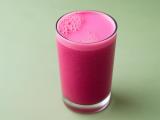What causes the accumulation of uric acid?
Uric acid is produced when the body processes purines found in numerous foods. If the body cannot effectively excrete this acid through the kidneys, it starts to accumulate in the blood, increasing the risk of gout. According to the American College of Rheumatology, approximately 4% of adults suffer from gout, with men being more commonly affected than women.
Research shows that foods high in purines are among the main culprits for elevated uric acid. Some of these include certain types of fish, such as canned and fresh sardines, anchovies, and herring, as well as meats (especially organ meats like liver), asparagus, mushrooms, and legumes like beans. Reducing the intake of these foods can significantly help alleviate gout pain and symptoms.
How does diet affect gout?
A well-planned diet can significantly reduce the risk of gout attacks. Scientists have found that in people who consume a low-purine diet, the blood uric acid levels decrease by up to 20%. Among the most recommended foods for preventing gout are:
- low-fat dairy products, which aid in uric acid excretion,
- whole grains, which provide stable blood sugar levels,
- vegetables (except for asparagus, spinach, and mushrooms, which have higher purine content),
- nuts and seeds, which do not affect uric acid levels,
- plenty of water - at least 2 liters per day, as it helps in acid excretion.
According to a study published in the New England Journal of Medicine, people who followed a low-purine diet saw a 60% reduction in gout attacks in one year.
Which beverages and dietary supplements can help?
In addition to choosing the right foods, what we drink is also important. Alcohol, especially beer and spirits, increases uric acid production and reduces its excretion, so it is advisable to avoid it. On the other hand, green tea and coffee can help reduce the risk of gout as they promote kidney function.
Some studies suggest that vitamin C may help lower uric acid levels. In a study in the American Journal of Clinical Nutrition, a daily intake of 500 mg of vitamin C was found to decrease blood uric acid levels by about 10%.
The key to healthy joints
If you have joint issues, it's important to adjust your diet and limit the intake of foods that can worsen symptoms. Avoid fish like sardines and herring, reduce red meat and alcohol consumption, and increase your intake of dairy products and vegetables. These kinds of changes can significantly impact joint health and reduce the risk of painful gout attacks.
As British rheumatologist Dr. John Taylor says: Small changes in diet can bring great improvements in joint health. The best solution is not always in medications, but in smart dietary decisions.
For long-term joint health and reducing the risk of gout, a healthy diet, regular physical activity, and adequate hydration are key. If you experience frequent joint pain, consult a doctor or nutritionist to adjust your dietary plan.









 Would you like to be informed about news on the website?
Would you like to be informed about news on the website?

